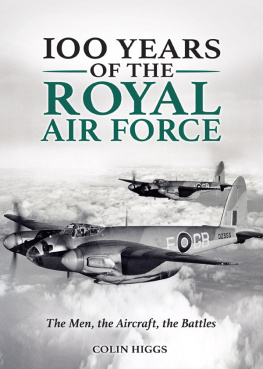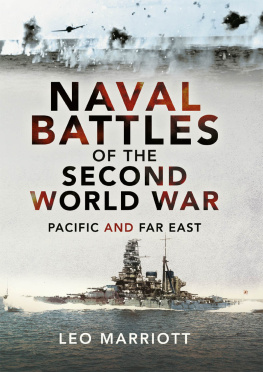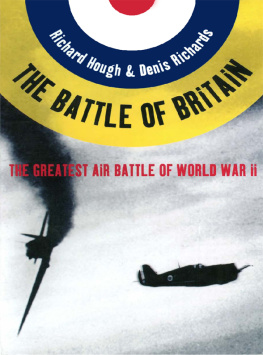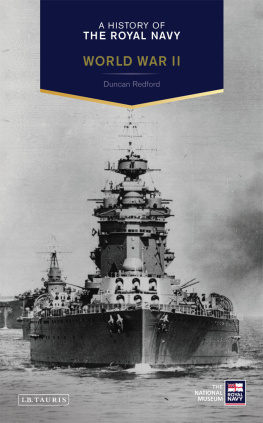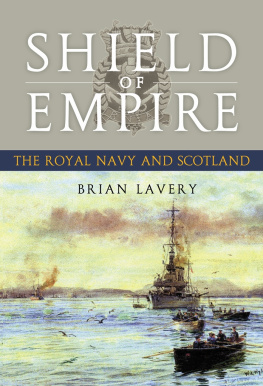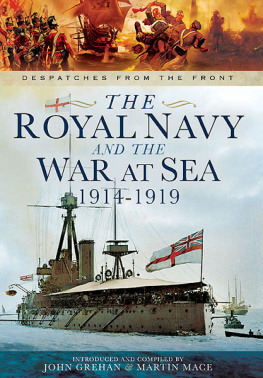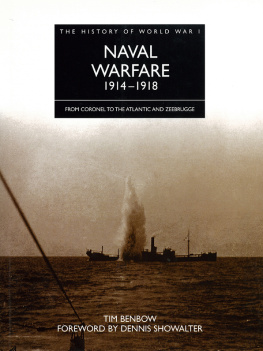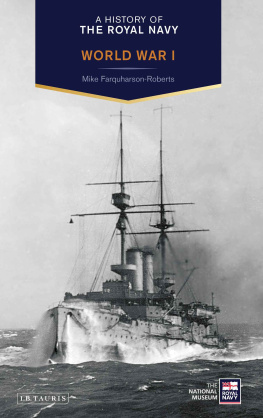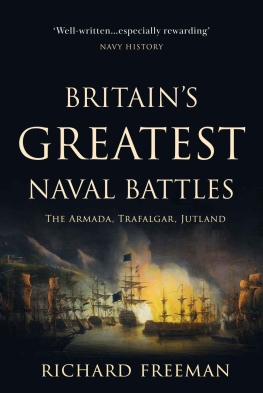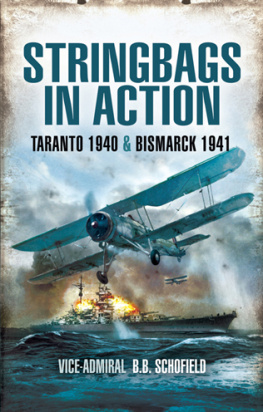THE ROYAL NAVY AND THE
Battle of Britain
THE ROYAL NAVY AND THE
Battle of Britain
ANTHONY J. CUMMING
NAVAL INSTITUTE PRESS
Annapolis, Maryland
The latest edition of this book has been brought to publication with the generous assistance of Marguerite and Gerry Lenfest.
Naval Institute Press
291 Wood Road
Annapolis, MD 21402
2010 by Anthony J. Cumming
All rights reserved. No part of this book may be reproduced or utilized in any form or by any means, electronic or mechanical, including photocopying and recording, or by any information storage and retrieval system, without permission in writing from the publisher.
Library of Congress Cataloging-in-Publication Data
Cumming, Anthony J.
The Royal Navy and the Battle of Britain / Anthony J. Cumming.
p. cm.
Includes bibliographical references and index.
ISBN 978-1-61251-383-6 1. Britain, Battle of, Great Britain, 1940. 2. Great Britain. Royal NavyHistoryWorld War, 1939-1945. 3. World War, 1939-1945EnglandLondon. 4. London (England)HistoryBombardment, 1940-1941. 5. Great Britain. Royal Air ForceHistoryWorld War, 1939-1945. 6. World War, 1939-1945Naval operations, British. I. Title.
D760.8.L7C86 2010
940.54211--dc22
2010021996
14 13 12 11 10 9 8 7 6 5 4 3 2
First printing
For Sarah
Contents
I n no particular order, I wish to thank a great many individuals and organizations for helping me reach this point. Mr. Richard Kennell and his staff at the Britannia Royal Naval College, Dartmouth, allowed me every access to their wonderfully comprehensive collection of naval literature and I am grateful for their invaluable encouragement throughout. Also at Dartmouth, my gratitude goes to Dr. Ian Roberts for taking time out of his busy schedule to translate a captured German Oberkommando der Wehrmacht (OKW) document. I am also indebted to Mr. Roderick Suddaby, Keeper of the Department of Documents, Imperial War Museum, London, for arranging access to documents from the estate of the late Sir Henry Tizard and for putting me in touch with Lieutenant Commander J. A. J. Dennis of Vancouver, Canada. My grateful thanks also go to Lieutenant Commander Dennis for the invaluable benefit of his wartime experiences in the Royal Navy and for our fascinating e-mail conversations. Also at the Imperial War Museum, Jane Fish of the Film and Video Archive rendered useful assistance in copying Why We Fight: The Battle of Britain onto DVD for my use. Annie Pinder at the Parliamentary Archives, London, made me welcome and helped me navigate around Lord Max Beaverbrooks personal papers. I must also thank the staff of the Liddell Hart Centre for Military Archives, the Ministry of Defence Naval Historical Branch, the Churchill Archives Centre, Cambridge, the British Library and their sister archive, the National Newspaper Library, not forgetting the library staff at the Universities of Plymouth and Exeter for their patient assistance on several occasions.
I was also fortunate to enjoy the hospitality of my wifes relatives, Pamela and Gordon Burridge of Sutton, who provided far better board and lodgings than I could otherwise have hoped for during my research forays. A former member of HMS Rodney, Mr. Ron Babb, gave valuable insights into some important operational aspects of the Home Fleet. In a similar vein, I would also like to thank Lieutenant Colonel Eric Wakeling of the Royal Engineers Bomb Disposal Club, who took the trouble to telephone me in response to my e-mail queries regarding German maritime bombs. The rector of Dollar Academy in Scotland, Mr. John Robertson, and the Dollar archivist, Janet Carolan, kindly sent me some important material concerning Admiral Forbes and have encouraged me throughout my research. Thanks must also go Julian-Andr Fink of the Militrgeshichtliches Forschungsamt, Potsdam, for replying to my detailed written questions in English. Sidney Tyas, a former Merchant Navy gunnery officer who endured several Luftwaffe bombing attacks, kindly gave me the benefit of his wartime experiences.
I am grateful for the kind and patient support of my former PhD supervisors at Plymouth, Dr. G. H. Harry Bennett and Professor Kevin Jefferys. Harry and Kevin went beyond the call of duty, not just in reviewing the drafts of my original thesis but also encouraging my ultimately successful application for the Julian Corbett Prize for Research in Modern Naval History. My thanks go to them and also to my mother who helped with the correction of the text. Mention must also be made of Dr. Eric Grove of the University of Salford, whom I first met at a conference in Northampton back in 2005 and with whom I have since had a number of stimulating conversations about the Royal Navy in the Battle of Britain. I would also like to express my thanks to those who heard my paper at the University of Exeters Maritime Conference in 2006 and who contributed their constructive comments and criticism. I am, of course, indebted to the University of Plymouth for the generous scholarship covering my fees and stipend without which it is extremely unlikely the thesis, and hence this book, would have been written.
Special thanks go to my wife who has endured countless hours of World War II television documentaries and accompanied me to conferences in the UK and United States, but especially for rescuing me from the consequences of my computing blunders that have driven us to the brink of insanity on several occasions. Finally, grateful thanks must go to Adam Kane and the staff of the Naval Institute Press for their patience and support in getting this research into print. Any mistakes that may remain in the text are entirely my own responsibility.
| AA | anti-aircraft guns |
| ABC | Admiral Andrew B. Cunningham |
| ACAS | Assistant Chief of Air Staff |
| ACNS (H) | Assistant Chief of Naval Staff (Home) |
| ADC | Air Defence Committee |
| ADGB | Air Defence of Great Britain |
| AI | Airborne Interception |
| AMSO | Air Member for Supply and Organisation, Air Council |
| AMT | Air Member for Training, Air Council |
| AOC | area officer commanding (RAF) |
| APS | Assistant Private Secretary |
| A/S | anti-submarine |
| BBC | British Broadcasting Corporation |
| BBK | Papers of Lord Beaverbrook, held in Parliamentary Archives, House of Lords, London |
| BEF | British Expeditionary Force |
| BL | British Library |
| CAS | Chief of Staff, Air Ministry |
| CH | Chain Home |
| CHL | Chain Home Low |
| CIGS | Chief of Imperial General Staff, War Office |
| C-in-C | commander-in-chief |
| CMG | Companion of the Most Distinguished Order of St. Michael and St. George |
| DCAS | Deputy Chief of Air Staff |
| DFC | Distinguished Flying Cross |
| DFM | Distinguished Flying Medal |
| DNAD | Director of Naval Air Division |
| DNI | Director of Naval Intelligence |
| DOD (H) | Director of Operations Division (Home), Royal Navy |
| D of P | Director of Plans |
| DOR | Director of Operational Requirements, RAF |
| DPS | Director of Personal Services |
| DSD | Director of Staff Duties |
| DSO | Distinguished Service Order |
| GCB | Grand Cross in the Order of the Bath |
| GPO | |
Next page

